Photo by: (Left) Musiq Soulchild by Tim Mosenfelder/Getty Images. (Right) Lucky Daye by Paras Griffin/Getty Images.
All June long, we’re celebrating Black Music Month approaching and you know TV One will always uplift our music and culture!
Black Music Month, also known as African-American Music Appreciation Month, was by former President Jimmy Carter in 1979 and honors African American musical influences essential to our country’s cultural legacy.
By providing fans with programs such as Unsung and Urban One Honors, we dive into all aspects of our music.
We’re kicking this week off looking at Neo-Soul and Jazz, two genres whose songs hav given us the feels! These songs gave us so much life that other artists had to flip them and give us more hits with the iconic samples.
Here are some of our favorite Neo-Soul and Jazz samples that we play to catch a real soulful vibe!
“Fun” – Brick –> “Video” – India.Arie
Brick was established in 1971 in Atlanta, Georgia, by members of two bands: one disco and the other jazz. They developed the name “Dazz” to describe disco-jazz.
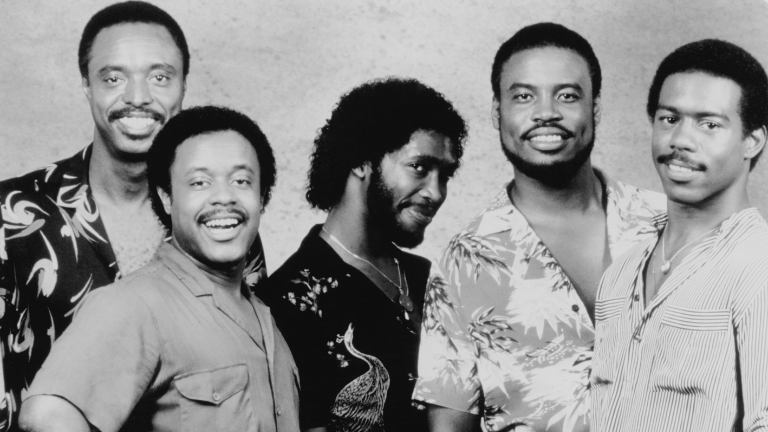
Jimmy Brown, who was the lead vocalist, saxophonist, and flutist; Regi Hargis Hickman, who was the guitarist, bassist, and vocalist; Ray Ransom, who was the lead singer, bassist, keyboardist, percussionist; and Eddie Irons, who sang lead vocals and played drums and keyboards, were among the members of Brick’s lineup.
They released their debut album Good High in 1976 and saw success with hit singles such as “Dazz” and “Music Matic.”
And the following year, the band dropped their sophomore album, Brick.
The album Brick also saw significant success as “Dusic” and “Ain’t Gonna Hurt Nobody,” both with a chunky, propulsive beat and catchy, light pop-jazz chant, became two more enormous successes in 1977.
This album is heavily sampled, “Ain’t Gonna Hurt Nobody” and “Fun” samples can be heard in many memorable songs.
Kid ‘n Play sampled “Ain’t Gonna Hurt Nobody” in the song of the same name that appeared on their 1991 album Face the Nation and their blockbuster 1991 film House Party 2 and its associated soundtrack.
In 1996, rapper Da Brat sampled “Fun” in her song “Live It Up” on her sophomore album Anuthatantrum.
And in 2001, neo-singer India Arie stepped on the scene and dropped her first single, “Video,” which sampled “Fun,” which gave us all the feels!

People loved the song “Video” so much that it is one of India Arie’s most popular singles, reaching number 50 on the Billboard Hot 100.
“Video” was nominated for Record of the Year, Song of the Year, Best Female R&B Vocal Performance, and Best R&B Song were all nominated for Grammy Awards in 2002.
“Halfcrazy” – Musiq Soulchild –> “Over” – Lucky Daye
Musiq Soulchild’s “Halfcrazy” was a song we couldn’t get out of our system in 2002!
“Halfcrazy” was the debut single on his sophomore album entitled Juslisen.

It is one of his most successful recordings, reaching #16 on the Billboard Hot 100, the highest of any single he has ever released. At the 2002 VMAs, it was also nominated for the MTV2 Award.
The single contains the sample of Francis Lai’s song “Vivre Pour Vivre,” featured on the soundtrack of the 1967 film Vivre Pour Vivre.
The song was one of the most popular heartbreaking songs in the early 2000s neo-soul scene years later. The song was sampled on one of TikTok’s biggest trending songs.
Nineteen years later, one of the upcoming R&B artists, Lucky Daye, dropped his single “Over.” It had TikTok in a tight hold.

In the first few seconds of the song, the famous guitar riff on “Halfcrazy” can be heard slightly sped up.
The famous “Over” single is the lead single off Lucky Daye’s sophomore album Candydrip.
The single follows much like its processor and is about a romance he can’t seem to let go of.
The track’s back-and-forth narrative pushes Daye to return to his ex every time she reappears in his life. Daye is torn between poisonous love and his sentiments, but he can’t seem to get away from both.
“Say Yes” – Floetry –> “Wait for It” – H.E.R.
If you are a neo-soul fanatic, you already know where we’re going with this one!
The British neo-soul duo Floetry dropped a banger in 2003. When we first heard “Say Yes,” we all knew this song would be in heavy rotation for years to come.

The second single from their debut studio album Floetic, “Say Yes,” was released. Marsha Ambrosius and Andre Harris collaborated on the song Harris produced.
The song was the group’s lone charting hit, peaking at #24 on the Billboard Hot 100 in 2003. The song received a Grammy nomination for Best R&B Performance by a Duo or Group with Vocal in 2004.
Although the group didn’t take home the Grammy, the song was monumental in the 2000s neo-soul era.
Thirteen years later, we’d hear a “Say Yes” sample on the R&B singer H.E.R.’s “Wait for It!”

In “Wait for It,” the song is created around a pitched-down sample of Floetry’s “Say Yes,” a celebration of rising tension between two lovers.
“God Make Me Funky” – The Headhunters –> “How’s It Goin’ Down” – DMX
In 1975, the jazz/funk quintet The Headhunters received their debut album, Survival of the Fittest.
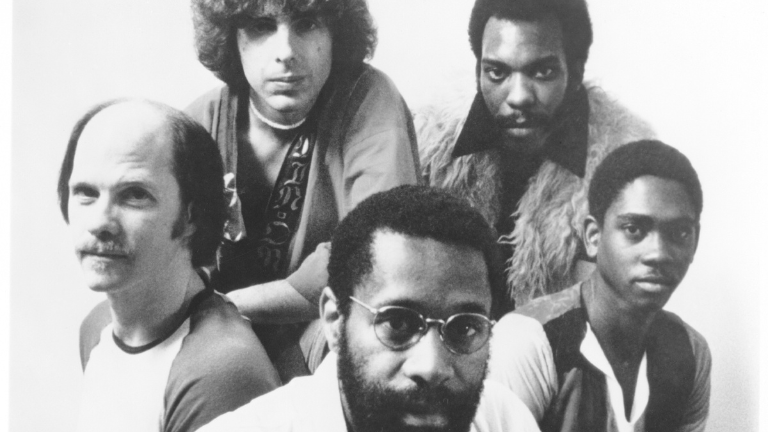
The iconic track on the album was “God Make Me Funky,” featuring The Pointer Sisters!
The notorious drum break alone makes the song stand out even today.
Samples of the 1975 song “God Make Me Funky” by the jazz/funk quintet The Headhunters can be found in many rappers’ songs because of the drum break alone.
For example, Biz Markie, N.W.A., The Fugees, DJ Jazzy Jeff and The Fresh Prince, Digable Planets, and many more have sampled an element of the song.
However, the most memorable song that samples “God Make Me Funky” hit is none other than the 1998 hit “How’s It’s Goin’ Down” by late great DMX featuring Faith Evans.
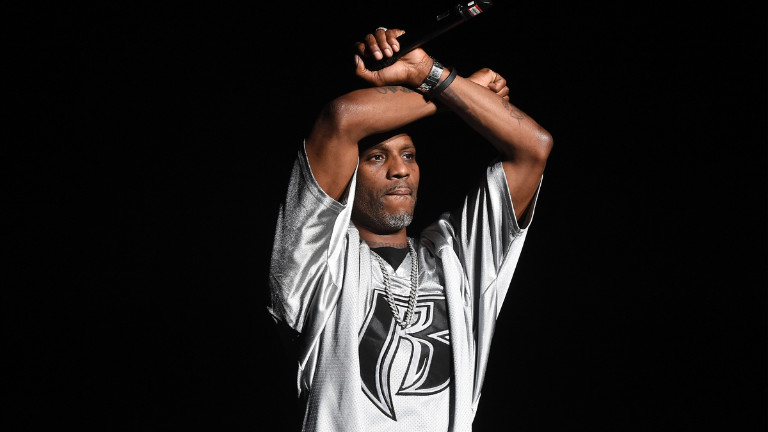
“How It’s Goin’ Down” is DMX’s slower-paced song that illustrates the story of an affair he has with a woman who has children, despite the children’s father being still in the picture.
The hardcore Yonkers rapper wonders if he and the woman want the same thing from a relationship.
The woman’s jealous man attacks another he believes is DMX, but it’s a case of misidentification.
Despite how he feels about the woman involved, DMX eventually ends the relationship because he feels awful about moving her family.
“Jessica” – Herbie Hancock –> “Shook Ones, Pt. II” – Mobb Deep
Herbie Hancock’s song “Jessica” was released on his eighth album Fat Albert Rotunda in 1969.
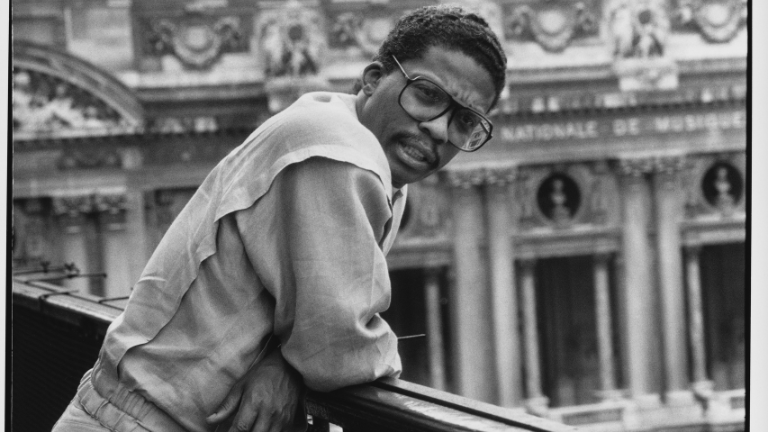
Hancock switches to a jazz-funk sound with a lighthearted 1960s R&B flavor on this album.
In 1995, the Queens-based duo Mobb Deep’s lead single “Shook Ones Part II” from their album The Infamous contained a pitched-down sample of “Jessica” by Hancock.
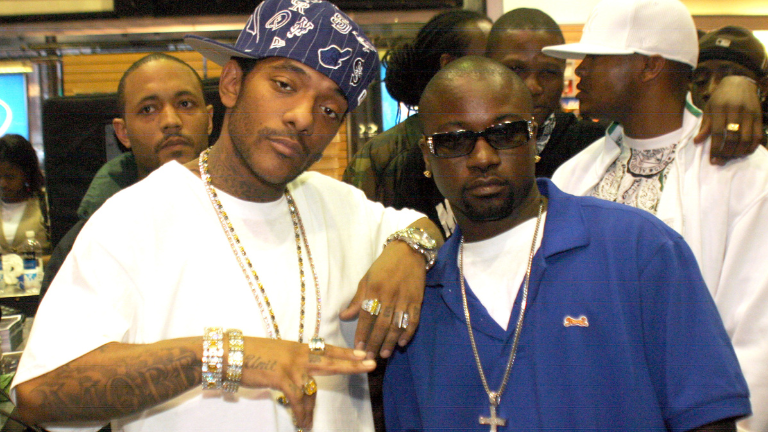
To create the iconic beat, the Herbie Hancock sample was slowed down, and the pitch was altered.
“Shook Ones Part II” also contains samples from “Kitty with the Bent Frame” by Quincy Jones. The drum break is sampled from “Dirty Feet” by Daly-Wilson Big Band.
“Sivad” – Miles Davis –> “Ain’t No Thang” – Outkast
“Sivad” (Davis spelled backward) leaves many people astounded whenever they hear the song.
In 1971, Miles Davis released the critically acclaimed Live-Evil, comprised of “electric music and freer structures and rock rhythms” based tracks.
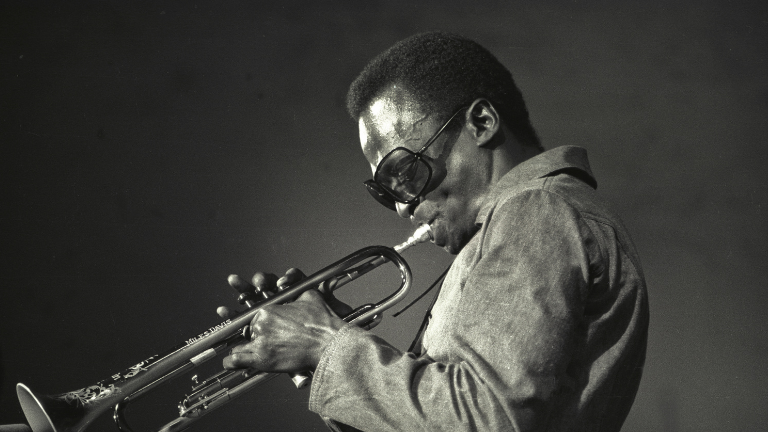
In the track “Sivad,” we hear Davis’ brilliant experimentation with styles, instruments, and personnel, blending rock & roll, funk, and avant-garde elements with jazz and blues.
Some might even say that the late Jimi Hendrix influenced Davis’ electric era.
This genuineness can be heard in Atlanta-based duo Outkast’s “Ain’t No Thang.”
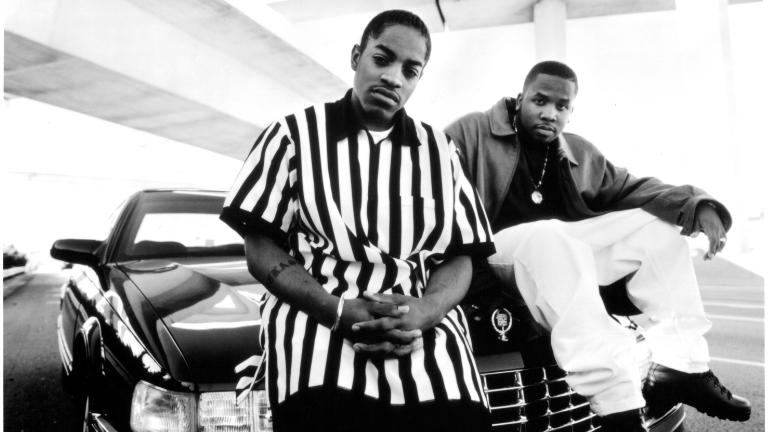
Because of the way it appears to glorify gun violence, this song stands out from the rest of OutKast’s discography.
“A Garden of Peace” – Lonnie Liston Smith –> “Dead Presidents II” – Jay-Z –> “A Muse” – dvsn
Lonnie Liston Smith is a musician, you can say influenced the growth of acid jazz.
“A Garden of Peace,” which ends Smith’s Dreams Of Tomorrow album from 1983, is the final track on an album that focuses on establishing Smith as a smoother-than-smooth R&B crossover performer with the help of his brother Donald on vocals.
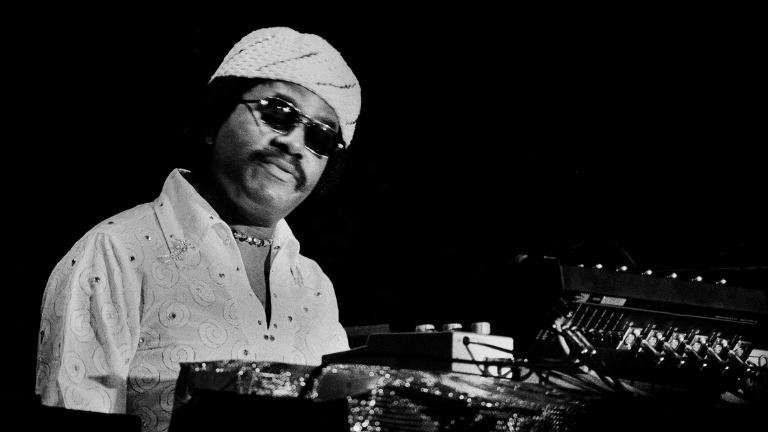
The track is a meditative piece dedicated to guru Sri Chinmoy that just so happens to have the kind of chord progression that can sound peaceful or tragic, depending on your mental state when listening to it.
With his extraordinary contributions to the music industry, many artists sampled his work.
In 1996, Brooklyn-native Jay-Z used a sample of “A Garden of Peace” on his hit song “Dead Presidents II.”
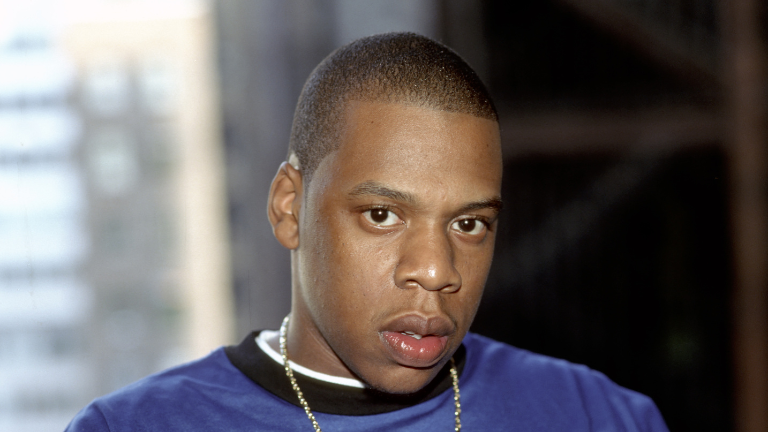
“Dead Presidents II” is an anthem of getting money with the faces of dead presidents. The instrumental of “A Garden of Peace” works perfectly as he describes how he gets to the bag.
Samples of “A Garden of Peace” continued to be used. In 2020, Canadian duo dvsn also used the song to give us another bop!
“A Muse,” which perfectly blends Smith’s melancholy lyrics with the thunderous beats, that dynamic is in full effect.
“Ode to Billie Joe” – Lou Donaldson –> “Jesus Walks” – Kanye West
Lou Donaldson’s cover of “Ode to Billie Joe” is a song that will go down in history.
“Ode to Billie Joe” is a song that tells the story of a suicide attempt. The opening stanza depicts the place and timeline of the events. A typical evening with the singer’s family about to have dinner: her mother explained that she had heard Billie Joe had committed suicide after they were all seated.
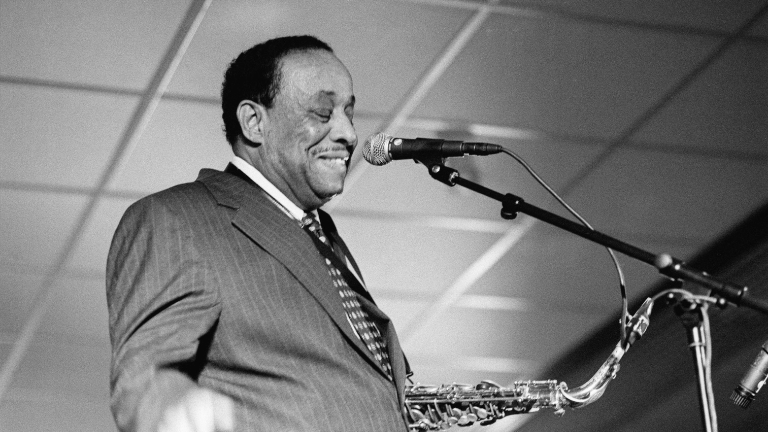
Donaldson’s version uses several instruments that retell Bobbie Gentry’s original story.
Because Donaldson’s creativity can paint the same picture that Gentry sadly tells.
Years later, Donaldson’s version allowed rapper Kanye West to release one of his most iconic and memorable songs, “Jesus Walks.”

“Jesus Walks” is a shocker—a pop song advocating Christianity, a topic many mainstream rappers don’t cover in their music. Despite this, it became Kanye’s third consecutive Top 20 song, was certified Gold and was nominated for a Grammy for Best Rap Song.
“Maybe Tomorrow” – Grant Green –> “Sing About Me, I’m Dying of Thirst” by Kendrick Lamar.
Grant Green’s “Maybe Tomorrow” was released in 1971. Quincy Jones wrote the track.
How Compton rapper Kendrick Lamar uses the sample is nothing short of amazing!
Lamar’s two-part “Sing About Me, I’m Dying of Thirst” shows living in an urban ghetto.
He delves into the stories that lead him away from gang culture and the spiritual rebirth that provided him with a way out of the streets from beginning to end.

Lamar begins by talking from the perspectives of two distinct persons before rapping from his perspective to address the difficulties he has faced.
K-Dot follows up where the outro sketch of “Swimming Pool” left off in the second part—Dave is slain, and his brother seeks vengeance. The song ends with the same prayer as the album’s opening track.
“Feeling Good” – Nina Simone –> “New Day” – Jaz-Z & Kanye West
Nina Simone was a visionary and activist with a distinct voice.
Rappers have exploited her tone and musicianship as musical markers for black struggle and survival for decades.
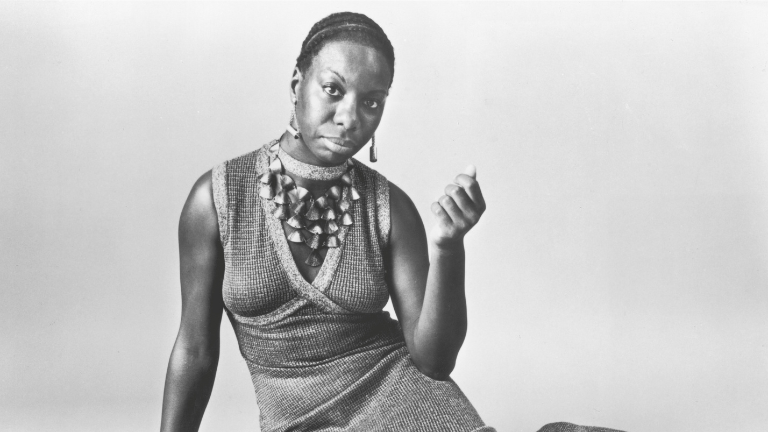
If not in her beliefs, then in her dynamism, that unique capacity to summon the sounds of the past and make them feel spanking new, there is more than a surface relationship between Simone and rap.
Nina continues to function as a political conduit for hip-hop iconoclasts.
With her track, “Feeling Good,” Simone provides nothing but pure joy and a soulful voice, which probably became her most memorable song.
“New Day” by Jay-Z and Kayne West, builds on the emotional state of the “Feeling Good.”

It’s an exceptionally personal and emotional Jay-Z track in which both rappers address their unborn children in the vein of 2Pac’s “Letter to My Unborn Child.”
Both have given birth to daughters since then.
Let us know what your favorite Neo-Soul/Jazz samples are!
Like TV One on Facebook and be sure to follow us on Instagram and Twitter.
